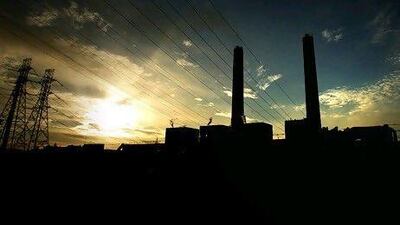The latest instalment in the saga of Lebanon's supposedly considerable oil and natural gas reserves in fields off its Mediterranean coast was aired this week.
What's the alternative?:
Energy Join The National as it explores alternatives to fossil fuels. Learn more
It came with the government announcing exploration to substantiate initial survey findings by European and US companies would begin within months.
Gebran Bassil, the Lebanese energy minister, estimated actual drilling contracts would awarded by the end of the year.
This one has something for everyone. As a sub-plot there is the predictable stand-off with Israel - some of the fields are in waters disputed by Lebanon and its Levant neighbour - with a bit of jingoistic tub-thumping thrown in by Mr Bassil, who has declared: "Lebanon has drawn its [maritime] borders based on the UN Convention on the Law of the Sea.
"No Lebanese will accept either the renunciation of their energy resources nor their maritime right," he roared. So there.
Such bravura hides the fact that Lebanon has been slow to exploit the potential wealth (the so-called 11th basin is understood to contain an estimated 1.9 billion barrels of oil and 122 trillion cubic feet of gas) in its territorial waters. It is a state of affairs for which the blame can be laid at the door of a political class more concerned with self-interest and putting religious, partisan and/or international interests before national ones.
Mr Bassil's words of defiance are nothing but balloon juice. Card-carrying party faithful aside, most Lebanese have given up believing promises made by their politicians on matters of national integrity and are not expecting for one second that any proceeds will make a blind bit of difference to their daily lives. Such is the disillusionment with politicians and the unshakable knowledge that many people of power and influence will get even richer on the back of this latest cash cow.
The wrangling over who will manage this latest file has already begun. In true Lebanese fashion, the government announced it would, within a month, appoint a committee to oversee the drilling and exploration process. Those with even the most basic experience in Lebanese affairs will tell you nothing stops a process faster than the formation of a committee. There is also speculation that any oil and gas revenues will end up in a sovereign wealth fund, but this is not a priority.
So what needs to be done? Well, assuming the government really has Lebanon's best interests at heart, the first thing to do would be to fill up the foreign currency reserves to protect the Lebanese pound. When that's done, it's time to service Lebanon's huge national debt on which interest payments are causing a headache of a budget deficit.
In tandem, a new monetary policy and new banking regulations would also have to be created to deal with a new environment in which the banks, holding fewer bonds, will have to recalibrate what the IMF calls their "structural relationship" with the government. In short, they must start behaving like banks, offering more corporate lending and fixed-income products to create value for the economy.
But there should also be a framework to guide them into this unfamiliar territory and it will have to be done gradually. Interest rates will come down, including those on deposits, so a scheduled programme is needed to adjust to the new reality.
Next, the government should invest in infrastructure - roads and utilities such as water and electricity, leading to eventual privatisation. Finally, and only then, can any excess can be used to create a sovereign wealth and/or a social welfare fund.
Realistic? "If this happens I will shave my body and run naked in the street," said Georges, my banker friend. "We already know of at least one major politician who has a man fronting for him on the oil and gas file. Instead of enjoying the prospect of using the revenues responsibly, for the good of the country, our economic gangsters are preparing for a feast."
Michael Karam is an associate editor-in-chief of Executive, the Lebanese regional business magazine
twitter: Follow our breaking business news and retweet to your followers. Follow us

